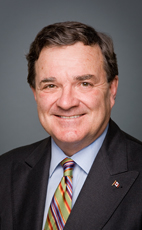Mr. Speaker, the budget tabled in the House of Commons on May 2, 2006 outlines the government’s commitments with respect to Bill C-48, An Act to authorize the Minister of Finance to make certain payments. Contingent on sufficient funds being available above $2 billion from the federal surplus for 2005-06, the Government will provide provinces and territories one-time additional funding of $1.4 billion to address short-term pressures in affordable housing.
In deciding how funds are to be allocated under Bill C-48, the government has balanced its priorities against its available resources, taking into account both existing levels of financial support and where it intends to dedicate its resources in the future.
The funding authority provided under Bill C-48 is discretionary. By providing $1.4 billion for affordable housing the government has chosen to meet a substantial part of the funding authorized through Bill C-48.

